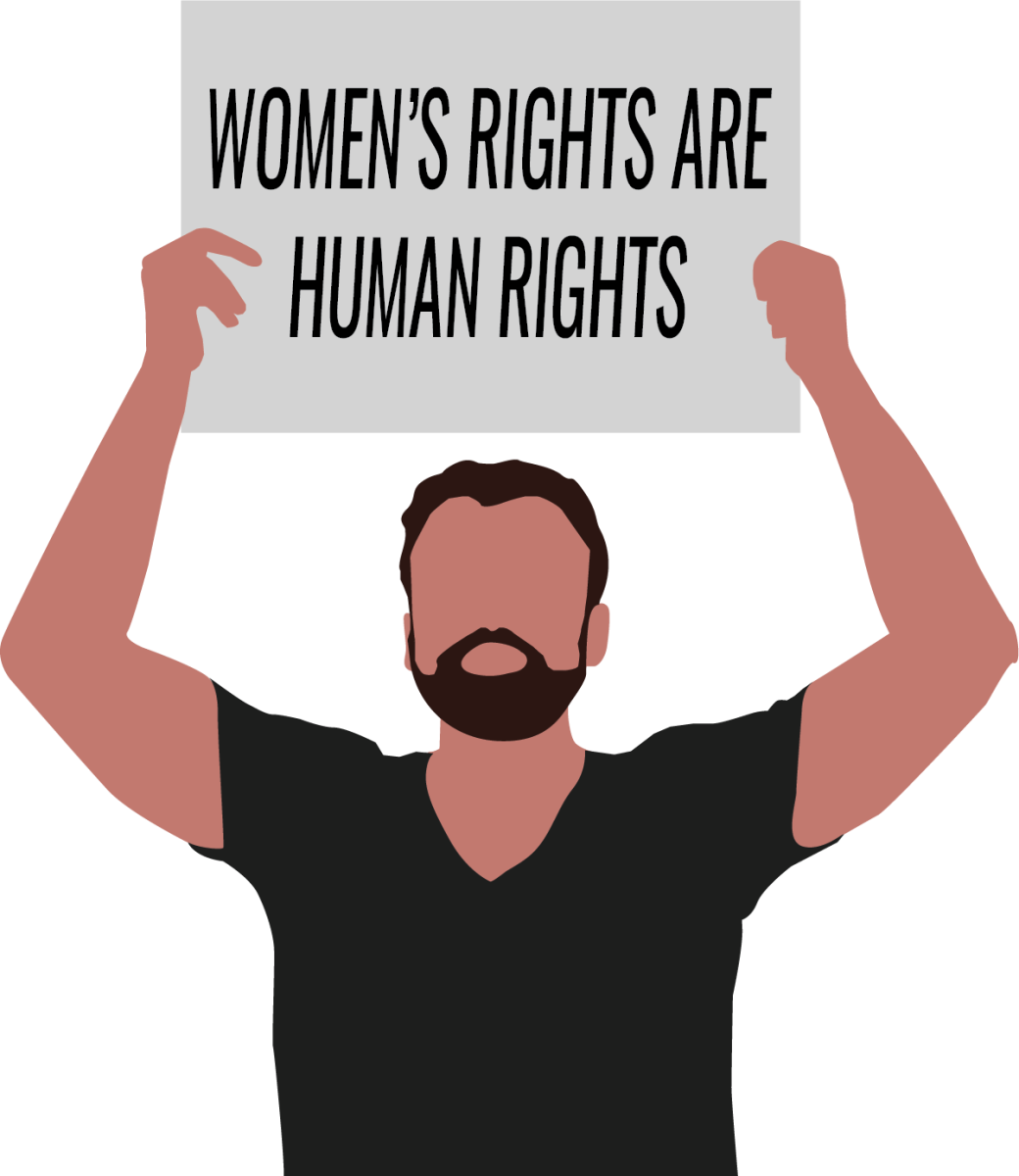It’s not emasculating to stand for human rights
This year marks the 100th anniversary of the 19th Amendment’s passing, which awarded and protected women’s constitutional right to vote. Due to this, Gov. Larry Hogan of Maryland declared 2020 to be the “Year of the Woman” in the state.
The Women’s March on Philadelphia additionally labeled their fourth annual march as “The Year of the Woman” in their marketing for the event. However, they marketed it as such because of the record-breaking female candidates, especially women of color and members of LGBTQIA+ community, in recent elections.
On Jan. 18, despite the cold and snow, thousands of people marched from Logan circle, down the Ben Franklin Parkway, to the Philadelphia Museum of Art to celebrate what women have accomplished in the past century and to fight further for equal rights and social reform.
With just a quick glimpse at this large crowd, it is evident that there is a disproportionate amount of female and male marchers. Since the Women’s March started three years ago, there have been contrasting views on whether men should participate in the event.

When I asked my guy friends if they were going to attend the march, they instantly looked uncomfortable and began giving lame excuses as to why they weren’t going.
They claimed that the name of the event made it seem exclusive to them and that the march was mostly for feminists anyway.
First of all, men can be feminists, too. That is not a rare, unheard-of concept.
I challenged my male friends and said they had to have at least one female relative or friend they would want to support in receiving equal rights and respect. I said that the basis behind the entire event was to celebrate and empower women, and men have the ability to do that as well.
With this they fell silent.
The Women’s March of Philadelphia states on their website, “All people who have read the purpose of our march and are allies to Women and Femmes’ rights are welcome.”
The one thing I love about the Women’s March is that the attendees have different priorities for why they march. Every year when I walk down the Benjamin Franklin Parkway, I see signs about climate change, protecting immigrants, racism, gun violence, student debt, etc., issues that aren’t commonly associated with women’s rights.
Individual passions are brought together, and for a couple of hours, everyone joins together for a common goal: fundamental human rights.
With the diversity of issues that marchers fight for at the Women’s March, male participation would not be deemed unfit, and quite frankly there’s really no excuse not to participate.
Don’t worry, attending the event isn’t emasculating. Women’s equality is not a women’s only issue.
At the very least, women’s rights impact the mothers, sisters, daughters, wives and female friends of men, people that men should support and respect the most.
Women’s rights are human rights, so any and every male concerned with that should at least consider attending the Women’s March in the future.













































